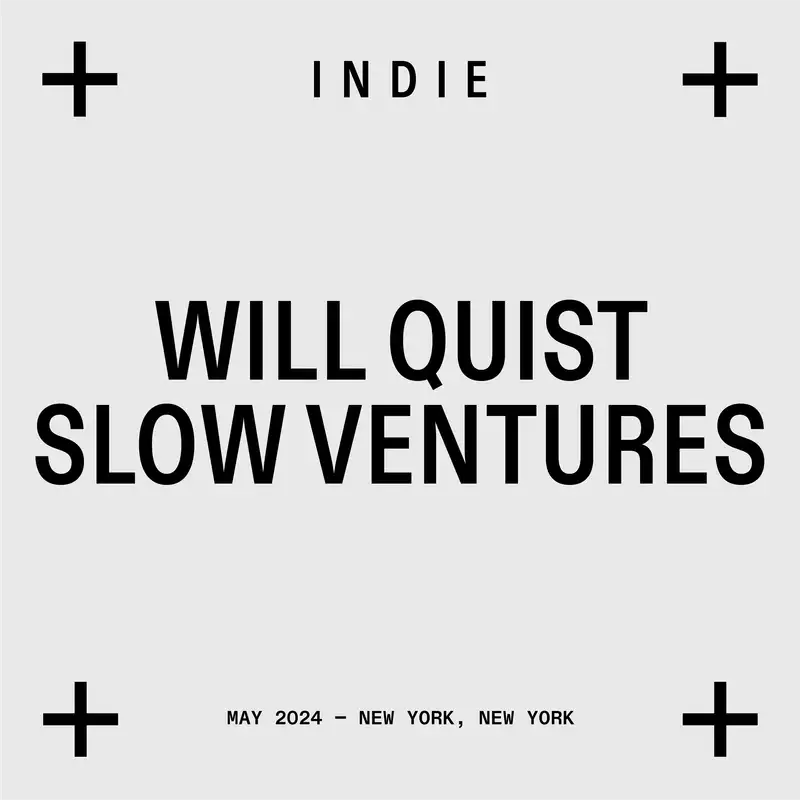
Unpacking The Slow PhD with Will Quist, Partner at Slow Ventures
This is really one you should watch on our YouTube. Like, all of them are. But this one has Will going to a White Board.
What if we could know whether the business idea you can’t shake is worth pursuing? What if we could ensure that we're pairing the right ideas with the right capital sources to ensure the best possible outcomes? Will Quist, from Slow Ventures, is on a mission to answer these question and more for founders with subject matter expertise and high opportunity cost.
To that end, he’s designed the Slow PhD, a program that embraces the idea that "Important companies and successful businesses can’t be hacked, forced, or faked.” Through a rigorous engagement process and step by step opportunity analysis, Will hopes to target more of the right people at the right opportunities with the right sources of capital behind them.
This conversation was an attempt to give a preview of the PhD program and explore ideas around its perimeter. Take aways from this one—
What if we could know whether the business idea you can’t shake is worth pursuing? What if we could ensure that we're pairing the right ideas with the right capital sources to ensure the best possible outcomes? Will Quist, from Slow Ventures, is on a mission to answer these question and more for founders with subject matter expertise and high opportunity cost.
To that end, he’s designed the Slow PhD, a program that embraces the idea that "Important companies and successful businesses can’t be hacked, forced, or faked.” Through a rigorous engagement process and step by step opportunity analysis, Will hopes to target more of the right people at the right opportunities with the right sources of capital behind them.
This conversation was an attempt to give a preview of the PhD program and explore ideas around its perimeter. Take aways from this one—
- There has been a decoupling of awesome products from awesome companies and awesome companies from awesome venture capital investments. Just because a product is great doesn’t mean it will make a great company or require venture capital. A lot is knowable early on about a company’s prospects.
- The abundance of venture capital in recent years may actually be a bug, not a feature, for founders. When capital was scarcer, getting funded was a stronger signal that an idea was worth a founder’s opportunity cost to pursue. Now, founders are sacrificing a lot of their valuable time without enough diligence.
- Venture capital should be used to fund experiments to test novel hypotheses about how the world works that could be wildly valuable if true. The experiments should generate clear true/false signals without requiring too much capital. This gives optionality to pursue bigger opportunities if the initial hypothesis is validated.
- If founders become better “investors” in their own companies by deeply understanding their business model, capital efficiency, and growth levers beyond just building great products, it could lead to more efficient allocation of capital and better venture outcomes overall. But truly great venture-scale companies may still be constrained more by the supply of innovative ideas than the supply of capital.